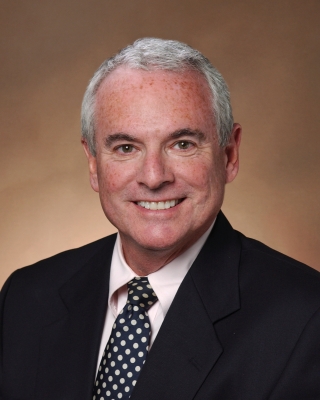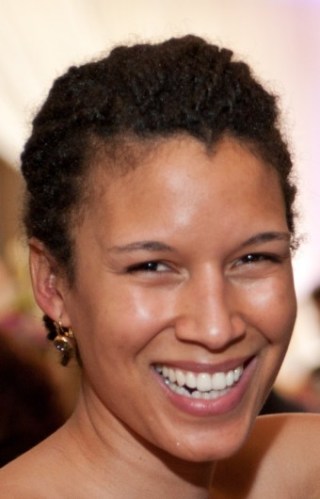A CEO & Entrepreneur Who Also Happens To Be A Surgeon; An Interview With Dr. Arlen Meyers
 "Taking Care of Business Is Taking Care Of Patients." -Dr. Arlen Meyers MD MBA
"Taking Care of Business Is Taking Care Of Patients." -Dr. Arlen Meyers MD MBA
When you ask most physicians what they do, the answer is expected to include their specialty and maybe a bit about a fellowship or possibly some research. With Dr. Arlen Meyers, it's not quite that simple. A professor of otolaryngology, dentistry, and engineering at the University of Colorado Denver, he is also cofounder, President and Chief Medical Officer of medvoy.com, a globally integrated, doctor to doctor referral platform. He has been named one of the 50 Most Influential Physician Executives of 2011 by Modern Healthcare and is currently serving as the founding CEO and President of the Society of Physician Entrepreneurs and Director of the Certificate Program in Bioinnovation and Entrepreneurship at the University of Colorado. This is just the tip of the iceberg; Dr. Meyers is working to radically change the way doctors do business. I was able to catch him for a quick chat.
Enter Dr. Arlen Meyers
What Does Your Job Entail
Basically, I have two lives. The first as an academic head and neck surgeon which involves teaching medical students, residents, staffing clinics, and all the other medical stuff. The other side of my life is all about bioentrepreneurship. My second world is about the research, education, and practice of bioentrepreneurship in medicine; specifically ENT surgery, and that’s how I spend my time.
What’s the secret to becoming an entrepreneur and a surgeon?
I don't think it's a secret, but I'd say you need to get up early and work your ass off (said with a grin). I don’t know what else to tell you. We only have 24 hours in a day, and we just choose to use them in a certain way.
When did you first develop an interest in entrepreneurship?
Well in retrospect, probably when I was 8 or 10, but I think I was too stupid to know that at the time. Fundamentally, my view on this is that becoming an entrepreneur is about 15% being hard wired to do it, and it’s about 85% getting the knowledge, skills, abilities, and work experience to make it happen.
What is your advice to physicians or medical students who are considering getting an MBA?
It's really quite simple. Basically you are going to get your ticket punched, and everyone’s going to say, “Hmmm, this doc is an MD MBA.” You’re going to meet a whole bunch of business minded people, and you’re going to learn some stuff. Those are the three reasons that you go to business school. Now, what opportunities will you have if you get an MBA? That’s always the real question.
Doctors who get an MBA basically are doing it for 3 main reasons:
1.They’re interested in furthering their education and getting credentials so they can be in a health service leadership position—VP for medical affairs, medical officer, president of the hospital, whatever.
2. They want to do it because they’re interested in health service research or strategy, so they want to run a public health office in their state or something like that.
3. They want to start a company or they want to be an entrepreneur.
My advice would be that an MBA makes the most sense if you’re in category 1. If you’re in category 2, you probably shouldn’t be pursuing an MBA. You should probably be doing a Masters in Public Health or Public Administration. And if you find yourself in category 3, you shouldn’t waste your time with an MBA; just go out and start a company.
 Why did you decide to start the Society of Physician Entrepreneurs (SOPE) and what kinds of things does it do for physicians who are interested in entrepreneurship?
Why did you decide to start the Society of Physician Entrepreneurs (SOPE) and what kinds of things does it do for physicians who are interested in entrepreneurship?
I started it because it needed to be done and no one else was doing it. The Society of Physician Entrepreneurs is a lesson in entrepreneurship and that is something that doctors are not trained to do. Basically, in order for you to start something to be successful, it has to satisfy three objectives: One, it has to be a big unmet market need. Two, you have to create something that satisfies that need in such a way that people are willing to pay for it. Three, you have create a business model so it sustains itself. We do not get trained about this stuff in medical school or residency.
To me, the biggest opportunity in US Health care reform is innovation. However the sad truth is that most doctors don’t get it. Remember the typical line, "doctors are terrible business people." Actually, I don’t think they are but that’s a whole another conversation. I want to fundamentally change that stereotype and SOPE is one way to make that happen. Our focus is not on practice management in the traditional sense, our focus is on innovation and on bioentrepreneurship. We want to show how to get a life science idea to market and change health care with your idea. It’s not how to squeeze another nickel out of your accounts receivable.
Do you have a book recommendation for our readers?
The one that I’m writing called The Life Science Innovation Road Map. You will hear more about when it is relased, I hope it will help doctors learn how to make there ideas a reality.


 1 Uncommon Comment
1 Uncommon Comment

"I wouldn't do it twice, but I would not 'not' do it once."
- ZDoggMD